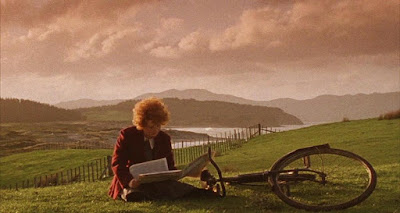Monday, September 20, 2021
Floating Weeds (1959, Yasujiro Ozu)
Sunday, September 12, 2021
Alexander Nevsky (1938, Sergei Eisenstein)
Quest Status: 756 / 1000
TSPDT Rank #532
"Defense? I don't know how to defend. We shall spite them with all our power!" - Alexander NevskySome films can be visually beautiful while being otherwise reprehensible. Alexander Nevsky is one of those films for me. Sergei Eisenstein was never known for his subtlety - as in his most famous film, Battleship Potemkin, one of the bombastic and explosive movies ever made. What bothers me about Alexander Nevsky is that it's a film about war that wholeheartedly promotes war as something virtuous and heroic. And that's something I just can't get behind, even if it is set in the 13th century.
The thing about Alexander Nevsky is that while it's a historical film about a real-life Russian hero (and saint!), it's obviously meant as a work of propaganda. How else can you take a film about fighting the barbaric Germans made just as the Nazis were beginning to set their sights on Europe? And wow, are these Germans barbaric! I mean, giving wailing babies the sign of the cross before dropping them on a giant bonfire, all while an old ghoul grinds a portable organ like the great grand-pappy of Dr. Phibes. Who wouldn't be ready to charge into battle at the drop of a hat (and a few lines about expressing your love for the motherland)?

Everything about the Russians, and the titular warrior's attempt to lead a ragtag group of peasants against the German horde, is just as pure and good as the Germans are corrupt and evil. Battle and the ability to wage war is seen as the foremost human virtue. Courage on the battlefield is the only standard that women use to choose their husbands. Add that to the fact that approximately a third of the film is one long battle sequence on a frozen lake. Of course, when the visuals are as masterful as these, it's hard to complain too much. The scene where the German battalion slowly creeps across the lake from far off in the distance is simply sublime. If only the rest of the film wasn't so hard to swallow.
--- 244 films remaining ---
Monday, September 6, 2021
An Angel At My Table (1990, Jane Campion)
Quest Status: 755 / 1000
TSPDT Rank #622








